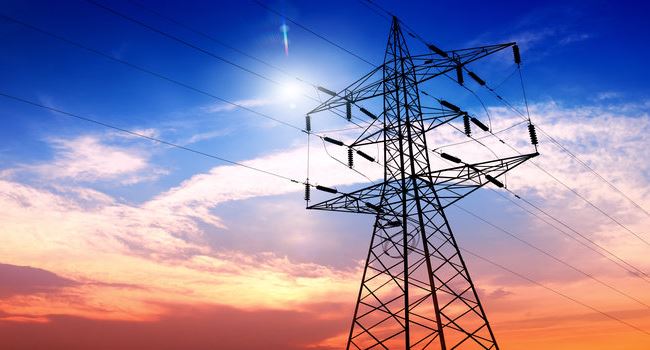Business
Nigeria may disconnect Niger, Benin republics over N2.60bn electricity debt —NERC

The Nigerian Electricity Regulatory Commission (NERC) has revealed that Nigeria may be forced to cut off power supply to the Republics of Niger and Benin over an outstanding N2.60 billion electricity debt.
This disclosure was contained in the NERC second-quarter 2020 report released on Thursday, February 25, in Abuja.
The report indicated that of the N4.10 billion (US$13.39 million) invoice issued by the Market Operator(MO) to international customers which included Societe Nigerienne d’electricite – NIGELEC, Societe Beninoise d’Energie Electrique – SBEE, and Compagnie Energie Electrique du Togo–CEET), only CEET paid the sum of N1.51 bilion (US$4.92million) in respect of services it received from the Nigerian MO.
Ripples Nigeria had reported that the Federal Government in December 2019, threatened to disconnect Togo, Benin, and the Niger Republic from electricity supply over non-payment of their electricity bills to Nigeria.
Immediate past Managing Director of the Transmission Company of Nigeria (TCN), Usman Mohammed, had explained that prior to his emergence as the Managing Director of TCN, Benin and Togo owed Nigeria more than $100 million.
The demand for international customers who receive electricity from Nigeria to pay their bills or be disconnected has been ongoing for years from Nigeria Electricity Supply Industry (NESI) which supplies electricity to Togo and Benin.
Both countries and the Niger Republic receive 300 megawatts electricity supply each from Nigeria.
Read also: NERC reveals increased amount of electricity generated in Q2 2020
Meanwhile, NERC in the report disclosed that the total electric energy generated in the second quarter of 2020 was 8,734,927MWh –1.40 per cent more than the energy generated during the preceding quarter.
Within the same quarter, it stated that the industry recorded a peak daily generation of 5,316MW while the available plant generation units increased to 73 from the daily average of 66 units recorded in the preceding quarter.
‘‘Although the increase in the available generation units in the second quarter of 2020 led to a 1.40 per cent increase in the total power generated, capacity utilisation rate fell by 8.16 percentage points during the period under review.
This reduction was attributable to constraints relating to gas supply shortage, and transmission and distribution networks bottlenecks.
According to the NERC, the aforementioned industry constraints have continued to pose major technical and operational challenges to the industry.
“The resolution of technical and operational constraints in NESI remains one of the top priorities of the Commission.
“The Commission has continued to work on resolving the DisCo-TCN interface bottlenecks to free up part of the stranded generation capacity by addressing the technical constraints inhibiting the flow of energy’’ the report stated.
NERC further revealed it was also reviewing the Performance Improvement Plans (“PIPs”) filed by DisCos and requested additional information and clarification from some DisCos to enhance the quality of the PIPs.
On the comparative summary of the system stability performance of the national grid for 2020/Q2 and 2020/Q1, the report shows a slight decline in the grid network stability during 2020/Q2 relative to 2020/Q1.
‘‘Although no incidence of partial system collapse (i.e. failure of a section of the grid) was recorded, there were two (2) incidents of total system collapse (i.e., total blackout nationwide) during 2020/Q2 as compared to one (1) incident recorded during 2020/Q1’’ , the report added.
Join the conversation
Support Ripples Nigeria, hold up solutions journalism
Balanced, fearless journalism driven by data comes at huge financial costs.
As a media platform, we hold leadership accountable and will not trade the right to press freedom and free speech for a piece of cake.
If you like what we do, and are ready to uphold solutions journalism, kindly donate to the Ripples Nigeria cause.
Your support would help to ensure that citizens and institutions continue to have free access to credible and reliable information for societal development.






















